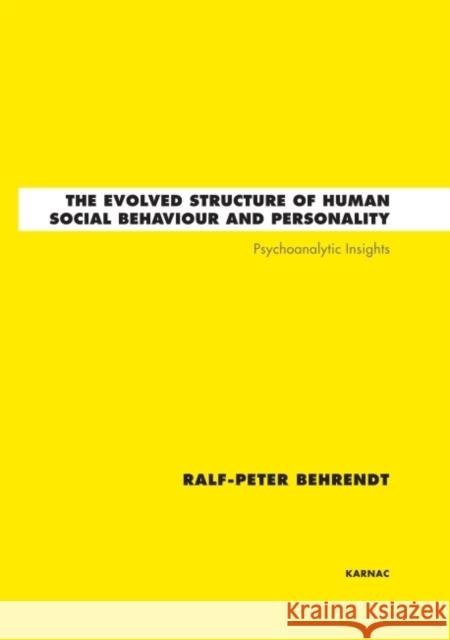The Evolved Structure of Human Social Behaviour and Personality : Psychoanalytic Insights » książka
The Evolved Structure of Human Social Behaviour and Personality : Psychoanalytic Insights
ISBN-13: 9781780491158 / Angielski / Twarda / 2012 / 296 str.
The Evolved Structure of Human Social Behaviour and Personality : Psychoanalytic Insights
ISBN-13: 9781780491158 / Angielski / Twarda / 2012 / 296 str.
(netto: 289,15 VAT: 5%)
Najniższa cena z 30 dni: 299,90
ok. 22 dni roboczych.
Darmowa dostawa!
The book reviews psychoanalytic theory with the aim of developing a evolutionarily feasible model of social behavior and personality that can help to bridge the gap between psychoanalysis and neuroscience.
In bringing together various psychoanalytic theories with aspects of ethology, sociology, and behaviorism, the book seeks to overcome the theoretical impasse faced by cognitive psychology and cognitive neuroscience in their endeavors to understand how the brain has evolved to organize complex social behavior in humans. The book is of academic interest, addressing those working in behavioral sciences who want to gather what can be learned from the rich body of psychoanalytic theory for the sake of advancing the goal shared by all behavioral sciences: to elucidate the principles of regulation of social behavior and personality and understand where and how we can find their neural underpinnings. It advocates that brain-social behavior relationship can only be understood if we learn from and integrate psychoanalytic insights gained across the last century from clinical work by what are often considered to be rival schools of thought. The book should also be of interest to psychoanalysts looking for a systematic and integrative overview of psychoanalytic theories, an overview that reaches across ego psychology, object relations theory, attachment theory, self psychology, and Lacanian theory. The book is not, however, a critique of psychoanalytic theory or a review of its historical development; it emphasizes consistencies and compatibilities rather than differences between psychoanalytic schools of thought.











